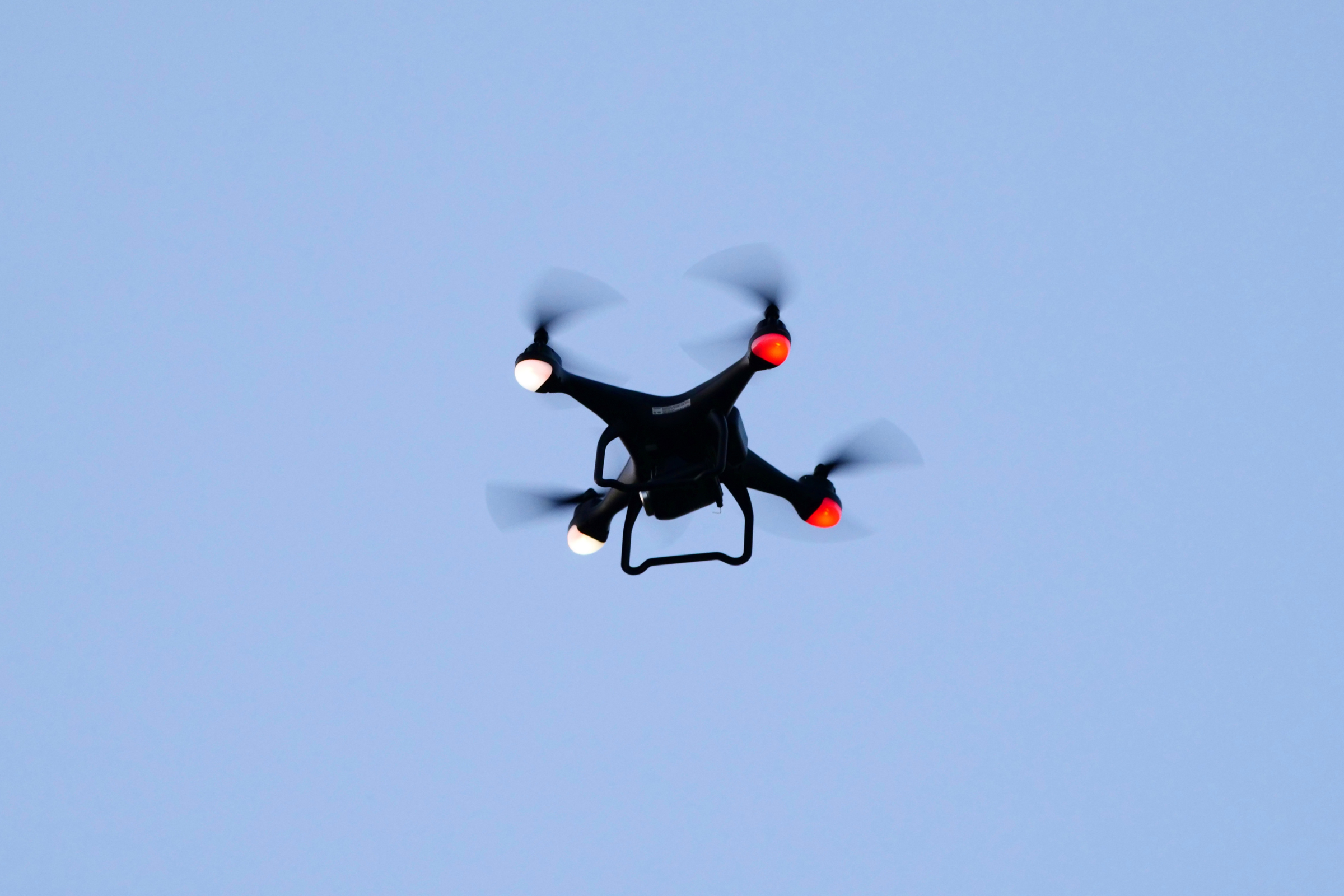Mysterious drone sightings surge across US; military bases on alert

Unidentified UAVs over military installations have sparked security concerns across the United States. Numerous sightings of suspected drones have been reported over residential areas, restricted sites and critical infrastructure, including reservoirs, electric transmission lines, rail stations, police departments and military bases. These incidents have prompted federal agencies to investigate and address increasing public concerns.
Government response
John Kirby, the White House national security spokesperson, provided an update regarding the recent drone sightings across the United States. According to Kirby, more than 5,000 drone sightings have been reported in recent weeks, but only about 100 of these required further investigation.
Kirby said the sightings have included a combination of lawful commercial drones, hobbyist drones and law enforcement drones, as well as some crewed aircraft and stars mistaken for drones.
However, the U.S. government is implementing precautionary measures. UAV detection and tracking systems are being installed at Picatinny Arsenal and Naval Weapons Station Earle in New Jersey. The FBI is spearheading investigations into the sightings, and local law enforcement agencies are conducting their own inquiries as well, CNN reported.
Several military installations have reported drone activity, including:
- Wright-Patterson Air Force Base in Ohio temporarily closed its airspace due to drone sightings.
- Picatinny Arsenal in New Jersey confirmed 11 unauthorized drone flights over its airspace.
- Naval Weapons Station Earle in New Jersey has also reported drone sightings.
- Ramstein Air Base in Germany experienced drone activity in early December 2024.
In an interview with ABC News, Alejandro Mayorkas, head of the Department of Homeland Security, said, “There’s no question that drones are being sighted.”
Impact on daily operations
The drone sightings have affected civilian infrastructure as well. Stewart International Airport in New York temporarily closed its runways for about an hour due to reported drone activity. Residents in several East Coast states have also reported seeing hovering and low-flying bright lights at night.
While the increase in sightings has raised concerns among residents and lawmakers alike, federal authorities maintain that most of these incidents do not pose a significant threat to public safety or national security.
Mystery Drones Spotted in Texas Near Military Base
What's New
The FBI and local police have launched an investigation after a number of mystery drones were spotted over White Settlement, a suburb of Fort Worth in Texas which houses a major naval base.
White Settlement Police Department (WSPD) Chief Christopher Cook said his officers saw "drones in the area flying near Bomber Road, Silver Creek, and N. Las Vegas Trail" and are trying to locate the operator following multiple reports from the public.
White Settlement is home to the Naval Air Station Joint Reserve Base Fort Worth, which houses the 301st Fighter Wing of the Air Force Reserve.
Newsweek contacted the WSPD and Naval Air Station Joint Reserve Base Fort Worth for comment via telephone, and the FBI by email, on Thursday outside of regular business hours.
Why It Matters
The past few weeks have seen a series of mysterious reported drone sightings across the United States, with a particular focus on the Northeast, along with American military bases in the United Kingdom and Germany.
President-elect Donald Trump has suggested mystery drones over the U.S. should be shot down, though earlier this week White House National Security Adviser John Kirby said the reports were a mixture of drones being used lawfully "as well as manned fixed-wing aircraft, helicopters and even stars" that were misidentified.
What To Know
In a statement posted on X, formerly Twitter, Cook said the WSPD "started responding to multiple reports of drones flying near city neighborhoods, federal and military properties on Tuesday, December 17, 2024 at 8:14 p.m."
He said WSPD officers sighted drones and "coordinated with security personnel at military and federal properties to try and locate the pilot-in-command."
According to Cook the WSPD received further reports of drone sightings in this area at 8:54 p.m. and then again at 10:21 p.m.
He added: "Out of an abundance of caution, reports have been initiated and we are working with the FBI, NCIS [Naval Criminal Investigative Service], and Air Force OSI [Office of Special Investigations] to determine the flight trajectories and who was piloting the unmanned aircraft.

"While we do not believe there were any immediate threats related to last night's activities, it is concerning due to operating in "NO FLY ZONES" near federal and military properties."
Due to the nearby naval base, Cook said no fly zones are in place over "the City of White Settlement and adjacent areas near federal and military properties."
Anyone with information about the incidents is urged to contact the WSPD via 817-246-4973 or 817-246-7070.
What People Are Saying
Fort Worth resident Bruce Dennis in an X post on Wednesday: "Near Fort Worth Joint Reserve Base tonight at 7:30 p.m. (...) saw at least 5."
Newsweek has not independently verified the photographs or video.
CBS News Texas reporter Amelia Mugavero also shared a video of a suspected drone sighting on X: "Several drones were seen Tuesday night flying over the White Settlement area (which is a no fly zone). Viewers saw groups of up to six drones flying near the Naval Air Station Reserve Base, causing concern for law enforcement, especially following similar sightings around the country."
In a statement sent to Newsweek regarding earlier sightings near military bases the Pentagon said: "We take all of those seriously. We will typically, when we detect them, attempt to classify them and take appropriate measures."
17 U.S. military bases adjacent to Chinese-owned farmland have experienced drone sightings
A map showing 19 military bases across the US and where Chinese-owned farmland is in relation to them.Revelation 6:3-4 “when he opened the second seal, I heard the second living creature say, “Come!” 4 And out came another horse, bright red. Its rider was permitted to take peace from the earth, so that people should slay one another, and he was given a great sword.
Important Takeaways:
- Mysterious drones have been reported near military bases in Hawaii and by installations in Utah, California, Maine and Florida — among other facilities scattered throughout the country.
- It comes as residents in New York and New Jersey have reported thousands of sightings of unexplained mystery drones in the night skies.
- House Foreign Affairs Committee Chairman Michael McCaul (R-Texas) said Tuesday he believes some of the unidentified drones are “spy drones” from China.
- “We need to identify who is behind these drones,” he said. “My judgment based on my experience is that those that are over our military sites are adversarial and most likely are coming from the People’s Republic of China.”
- Sources have previously raised their concerns to The Post over Chinese landowners, who are usually linked to, or working on behalf of, the country’s communist government.
- Morgan Lerette, a former contractor for private military contractor Blackwater, previously told The Post: “The Chinese are, or will, use this farmland to learn more about US military capabilities, movements, and technology.
- “This will allow them to better understand how to transition their military from a defensive strategy to an expeditionary one.”
- Chinese holdings total under one percent of foreign-owned agricultural land in the US, per NBC, but it’s the proximity to critical military installations which raises concerns, critics have charged.
Revelation 6:3-4 “when he opened the second seal, I heard the second living creature say, “Come!” 4 And out came another horse, bright red. Its rider was permitted to take peace from the earth, so that people should slay one another, and he was given a great sword.
Important Takeaways:
- Mysterious drones have been reported near military bases in Hawaii and by installations in Utah, California, Maine and Florida — among other facilities scattered throughout the country.
- It comes as residents in New York and New Jersey have reported thousands of sightings of unexplained mystery drones in the night skies.
- House Foreign Affairs Committee Chairman Michael McCaul (R-Texas) said Tuesday he believes some of the unidentified drones are “spy drones” from China.
- “We need to identify who is behind these drones,” he said. “My judgment based on my experience is that those that are over our military sites are adversarial and most likely are coming from the People’s Republic of China.”
- Sources have previously raised their concerns to The Post over Chinese landowners, who are usually linked to, or working on behalf of, the country’s communist government.
- Morgan Lerette, a former contractor for private military contractor Blackwater, previously told The Post: “The Chinese are, or will, use this farmland to learn more about US military capabilities, movements, and technology.
- “This will allow them to better understand how to transition their military from a defensive strategy to an expeditionary one.”
- Chinese holdings total under one percent of foreign-owned agricultural land in the US, per NBC, but it’s the proximity to critical military installations which raises concerns, critics have charged.














